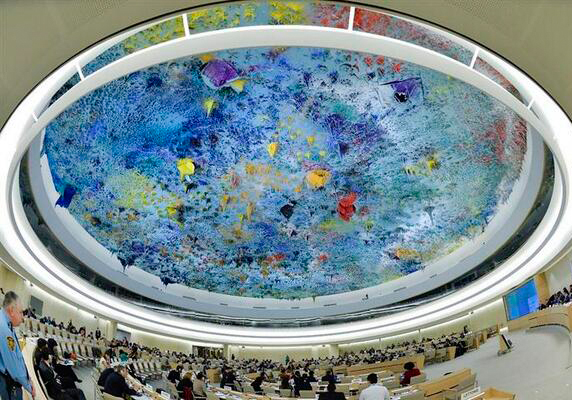
Dec 28, 2018 | Multimedia items, News, Video clips
During a week of training and practical experience of UN human rights mechanisms in Geneva, women lawyers spoke of the ways in which civil society actors can use these mechanisms to strengthen advocacy efforts.
As part of a project supported by the German Mission to the United Nations in Geneva the ICJ invited two groups of women lawyers to Geneva to attend training workshops that took place during the course of the June and September ordinary sessions of the UN Human Rights Council.
Participants spoke about their experiences with the interplay between UN mechanisms and domestic changes.
Lebanese lawyer Nina Abdallah noted the limitations of these mechanisms when States do not accept mechanisms that allow for individual complaint. As Lebanon has not yet become party to the Optional Protocol of the CEDAW Convention this means that individuals cannot access the CEDAW Committee to seek a remedy for violations and against that State’s failure to meet obligations under the Convention.
However, she explained that although this limits the accessibility of certain mechanisms, civil society can still play an important role in raising rights issues, calling for removal of reservations and acceptance of complaint procedures for specific Conventions through other mechanisms, such as the Universal Periodic Review reporting process.
Maria Sol Taule, a lawyer from the Philippines working for human rights NGO Karapatan, noted that it is difficult for UN mechanisms to address individual cases when there are so many issues to deal with. However, she said that these mechanisms do still serve as an “effective tool to use as a platform to drumbeat our issues that haven’t been heard by our respective governments.”
Civil society participation in the Human Rights Council, State reporting processes for Committees and the UPR provide an occasion to highlight the human rights difficulties faced within specific countries. Ms Taule said this kind of engagement also offers the opportunity to enhance international solidarity with other organizations from other countries that are dealing with similar rights issues.
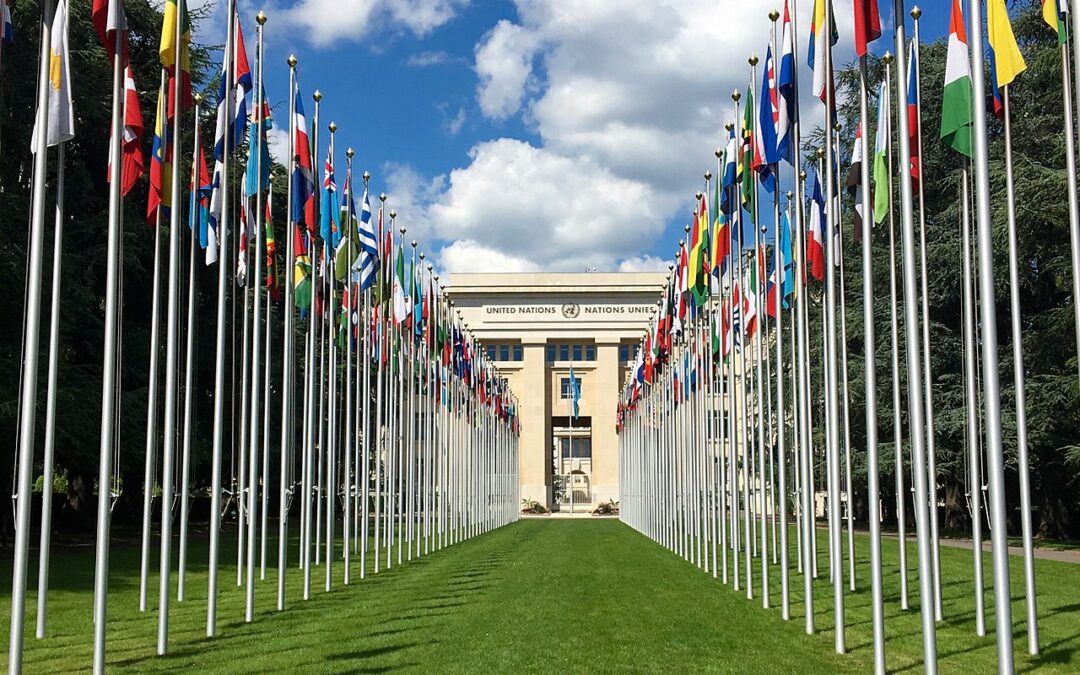
Dec 21, 2018 | Multimedia items, News, Video clips
The ICJ invited a number of women lawyers to Geneva to participate in a training workshop and gain practical experience of UN human rights mechanisms as part of a project supported by the German Mission to the United Nations in Geneva.
One group of women came to Geneva in June during the 38th session of the UN Human Rights Council and 70th session of the Committee on the Elimination of Discrimination against Women, and the other group came in September to coincide with the 39th session of the Human Rights Council.
During the week long training workshops participants learned about the international human rights mechanisms available to tackle issues of women’s access to justice and gained hands-on exposure to the operation of these mechanisms in practice.
Participants spoke about the impact that the CEDAW Convention has had in their domestic legislation.
Donia Allani a lawyer and lecturer at the Faculty of Legal, Political and Social Sciences of Tunis, discussed the impact of CEDAW in shaping legislation in Tunis to eliminate violence against women and facilitate access to justice but noted that women still faced stigmatization.
Donia Allani commented, however, that UN mechanisms could be improved to ensure that all activists and feminists can access these mechanisms without fear of reprisals.
Uzbek lawyer Sabina Saparova, also spoke of the impact that international law and standards can have domestically. She explained that Uzbekistan’s ratification of the CEDAW Convention provided an international commitment to incorporating equality between men and women into its legal structure. Recently the president of Uzbekistan initiated the first steps toward the adoption of a law on the prevention of domestic violence.
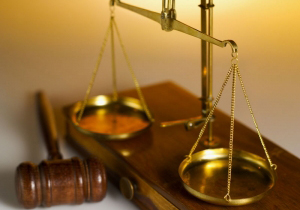
Dec 18, 2018 | Multimedia items, News, Video clips
Lawyers from a diverse range of countries, including Egypt, Lebanon, Nepal, the Philippines, Tunisia and Uzbekistan have identified the many barriers that women typically face in accessing justice in their countries.
Common trends and practices identified included socio-economic marginalization, gender stereotypes and patriarchal attitudes.
The observations came during two training workshops held in Geneva in June and September to coincide with sessions of the UN Human Right Council and UN Committee on the Elimination of Discrimination against Women. The workshops were part of a project on enhancing women’s access to justice through UN human rights mechanisms, supported by the Permanent Mission of the Federal Republic of Germany to the UN in Geneva.
A lawyer from Uzbekistan noted that domestic violence flourishes in states where common attitudes hold that this is an internal matter to be resolved within families.
A particular concern raised in respect of Lebanon was discrimination linked to transference of nationality, where Lebanese women married to a foreigner cannot pass their nationality to their children but Lebanese men married to a foreigner can.
Meera Maharjan, lawyer from Nepal, noted the cultural, educational and economic barriers that impede women from being able to take on decision-making roles and the impact this has on the exercise of their rights.
Malaysian lawyer Yvonne Lim explained that the women who are often in need of access to justice tend to be from the lower rungs of the socio-economic strata and lack the resources, support and basic awareness about their human rights and the remedies that may be available to them.
During the September training session the ICJ organized a side event to the 39th session of the Human Rights Council on ‘applying a women-centred approach to access to justice’ to further explore these issues.
Secretary-General Saman Zia-Zarifi moderated the event and panelists included:
• ICJ Commissioner Justice Sanji Monageng, former Vice-President of the International Criminal Court
• Lisa Gormley, Research Officer for the Centre for Women, Peace and Security at the London School of Economics
• Meera Maharjan, Nepalese lawyer and legal officer for Resilience for Sustainable Women Empowerment (RISE)
You can watch a recording of the event, and interviews with two of the workshop participants below.
https://www.facebook.com/ridhglobal/videos/565112000574216/UzpfSTQ3MTQ2NzA4NjIyMTM3MzoyMjEyNTUzNjc1NDQ2MDMw/
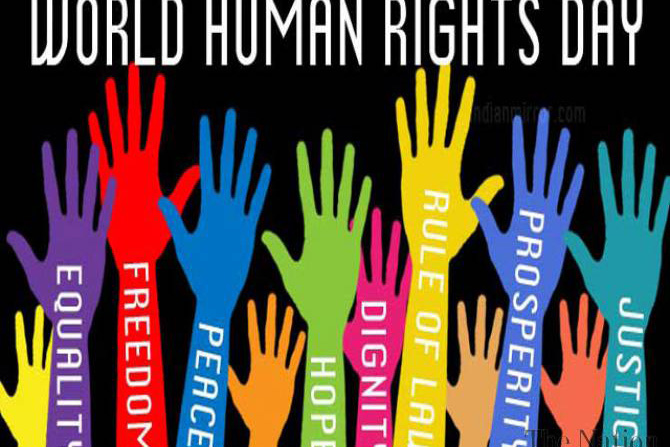
Dec 10, 2018 | Multimedia items, News, Video clips
Today, 10 December 2018 marks the 70th anniversary of the adoption of the Universal Declaration of Human Rights (UDHR). Developed as a universal standard setting out the rights to be enjoyed by everyone, the elaboration of the UDHR was one of the first actions undertaken by the newly established UN in carrying out its human rights mandate.
The UN Charter, forged after the ravages of the Second World War, places advancement of human rights as a core purpose and principle of the UN.
Over the past 70 years, the UN and regional human rights systems have taken the UDHR as the benchmark in developing the impressive normative architecture that constitutes the present day basis of international human rights law and standards.
The International Commission of Jurists (ICJ) was founded in 1952, only four years after the UDHR, with a mission to advance the rule of law and legal protection of human rights. Most of the international legal human framework at that time had still not yet been developed. The founding members of the ICJ believed that the lofty human rights principles enunciated in the UDHR needed to be transformed into hard and enforceable legal obligations incumbent on all States. From its founding, the ICJ worked to develop treaties and other standards aimed to make the enjoyment of human rights real for people, and not merely aspirational.
According to Sam Zarifi, Secretary General of the ICJ, “The ICJ’s biggest contribution to the international legal framework is still to bring together jurists from around the world to defend the rule of law and the universality of human rights at the global and local level.”
“Many now established global legal instruments have the fingerprints of the ICJ all over them. Crucial regional frameworks in the African, European, and American regions were developed with the deep and sustained involvement of the ICJ, as were the creation of the post of UN High Commissioner for Human Rights and the International Criminal Court,” said Sam Zarifi.
The UDHR has not only inspired the work of human rights defenders, but has also been foundational for the general acceptance of the notion of human rights around the world.
From 1948 until the end of the twentieth century, there has generally been a continuous upward trajectory towards the advancement of human rights, even if there have been many pitfalls along the way.
The notion that people have rights is now universally accepted and known by people. At the Vienna Conference on Human Rights in 1993, all States of the world not only reaffirmed their commitment to the UDHR, but also agreed that “the universal nature of these rights and freedoms is beyond question.”
Over the years, there have certainly been major shortcomings in the push to achieve the realization of the human rights for all.
Some of the extreme examples include armed conflicts replete with crimes against humanity, war crimes and even genocide, followed by a failure to hold perpetrators accountable.
And there remains extreme poverty in parts of the world marked by a thorough neglect of economic and social rights.
Despite these shortfalls in implementation, it remains the case that human rights have been accepted as a key component in addressing humanity’s problems in the 70 years since the adoption of the UDHR.
“Over the years, more and more States have ratified human rights treaties, more States have incorporated human rights in their domestic law, and more courts have started to enforce human rights. At the grass roots law level, more organizations have demanded human rights as an entitlement and not just as an aspiration,” explains Ian Seiderman, Legal and Policy Director of the ICJ.
Despite, this long term trend in advancement of human rights, there are warning signs that progress is slowing and in some places has even reversed particularly in the past decade.
“We are now seeing a very strong pushback against human rights proclaimed in the UDHR from countries around the world,” says Ian Seiderman.
“Some of the pressures have come from the security angle, where even States that previously championed rights insist that rights protection must cede to security interest. More recently there has been a rise in populist authoritarian governments that don’t even pay lip service to human rights anymore. And many States have also turned their backs on the commitment to protect the most marginalized and vulnerable, such as refugees and migrants,” he adds.
Roberta Clarke, Chair of the ICJ Executive Committee:
At the normative level, there remains the notable gap in the international legal protection from transnational corporations and other business that abuse human rights and the reticence of many States to participate in good faith in the efforts at the UN to close this gap with a new business and human rights treaty.
This backlash has only redoubled the ICJ’s commitment to fight for the values originally imagined by the writers of the Universal Declaration of Human Rights.
The ICJ and its individual Commissioners remain heavily involved in the development of human rights standards and their implementation based on the UDHR and a part of the larger human rights movement.
The ICJ continues to work to adopt human rights law to changing conditions in the modern world, develops the human rights capacities of lawyers and judges in all parts of the world, undertakes legal advocacy internationally and in many countries, and provides legal tools for human rights practitioners.
Robert Goldman, ICJ President:
On the 70th anniversary of the UDHR, it is critically important to recall why the UDHR was established in the first place, especially in light of the current regression of human rights development around the world.
The preamble of the UDHR reminds us that “ disregard and contempt for human rights have resulted in barbarous acts which have outraged the conscience of mankind.”
But more critically, it also insists that addressing these and other acts of inhuman rights require that human rights be protected by the rule of law.
This will be the ICJ’s continuing mission.
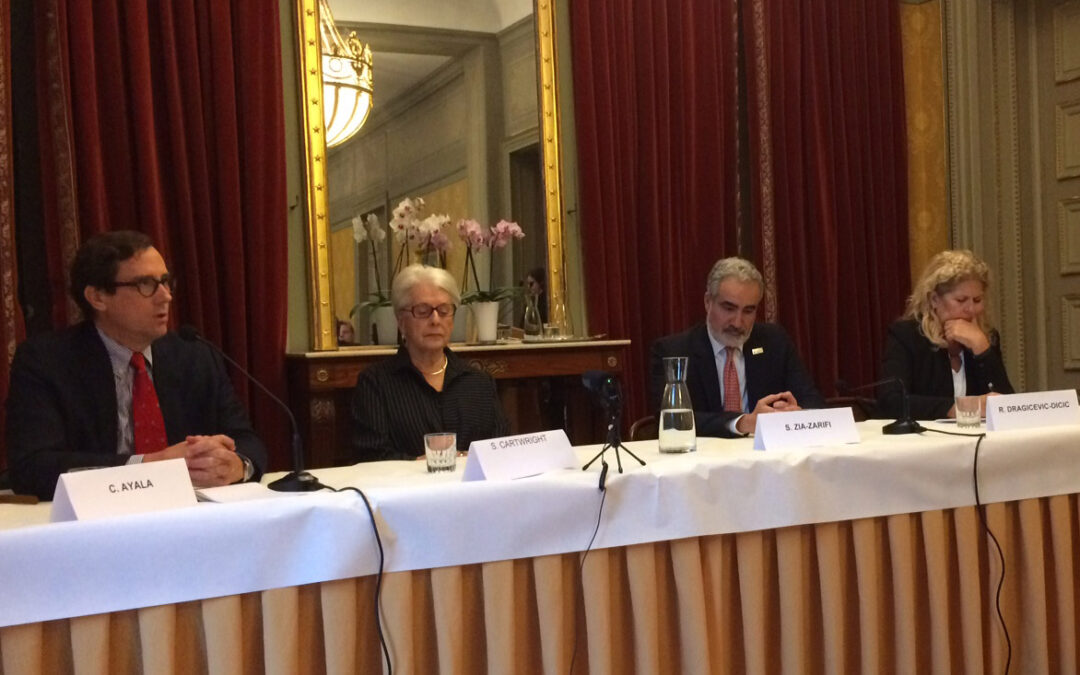
Oct 23, 2018 | Multimedia items, News, Video clips
At an event at the city’s Palais Eynard, prominent ICJ Commissioners discussed the supremacy of the Rule of Law and also why it is important to be in Geneva. Watch the video.
The Executive Committee (ExCo), representing the whole Commission of Jurists, participated in the event.
Sam Zarifi, ICJ Secretary General, opened the event by reiterating the importance for the ICJ to be headquartered in Geneva, not only for the UN and international community but also for the city’s and canton’s legal and human rights community.
“It is absolutely clear that we live at a moment in the world when lawyers, judges, jurists are under attack and it is important for the legal community across the world, regardless of borders, regardless of languages, regardless of legal systems, to come together to defend the notion of the rule of law and defend the security and well-being of lawyers and jurists around the world.”
Carlos Ayala, ICJ’s Vice-President, said the ICJ was a unique organization working in the field of the Rule of Law, not as an isolated notion but within the framework of Human Rights and democracy.
He explained how the ICJ is structured and working around the world and insisted on the impact the ICJ is having through its activities.
He said that the organization’s legal outputs were used to have an impact on the overall human rights situations, cases, court decisions, and in training judges, lawyers, prosecutors and others.
Radmila Dragicevic-Dicic, also ICJ’s Vice-President, insisted on how it is important to share experiences about human rights issues and finding solutions to protect different rights.
She gave her personal example of being a judge in former Yugoslavia and Serbia to show how with tenacity and courage one can help establish an independent judiciary even in some of the hardest situations.
She testified how she was helped by the ICJ and Switzerland in her fight for justice.
“If you fight for independence of judges and lawyers in your country, you fight for judges and lawyers everywhere,” she added.
Dame Silvia Cartwright, ICJ Commissioner and ExCo member from New Zealand, was the first woman appointed to the High Court in New Zealand and she was also Governor General of New Zealand.
She said that she was privileged to come from a country that has always promoted and protected the Rule of Law but that unfortunately many recent examples showed that this endorsement could change overnight.
Very active in the fight for women’s rights she said how through her professional work she realized the terrible impact that the Khmer Rouge’s regime in Cambodia and civil war in Sri Lanka had on women.
“Generally speaking I’m quite pessimistic because I think we have reached another stage of the cycle that seems to occur every couple of generations where we are heading towards a more fascist world. So this is the time when human rights must be protected when we must fight to maintain the norms we have struggled for so long,” she said.
Watch the full event here:
https://www.facebook.com/ridhglobal/videos/335212527229422/
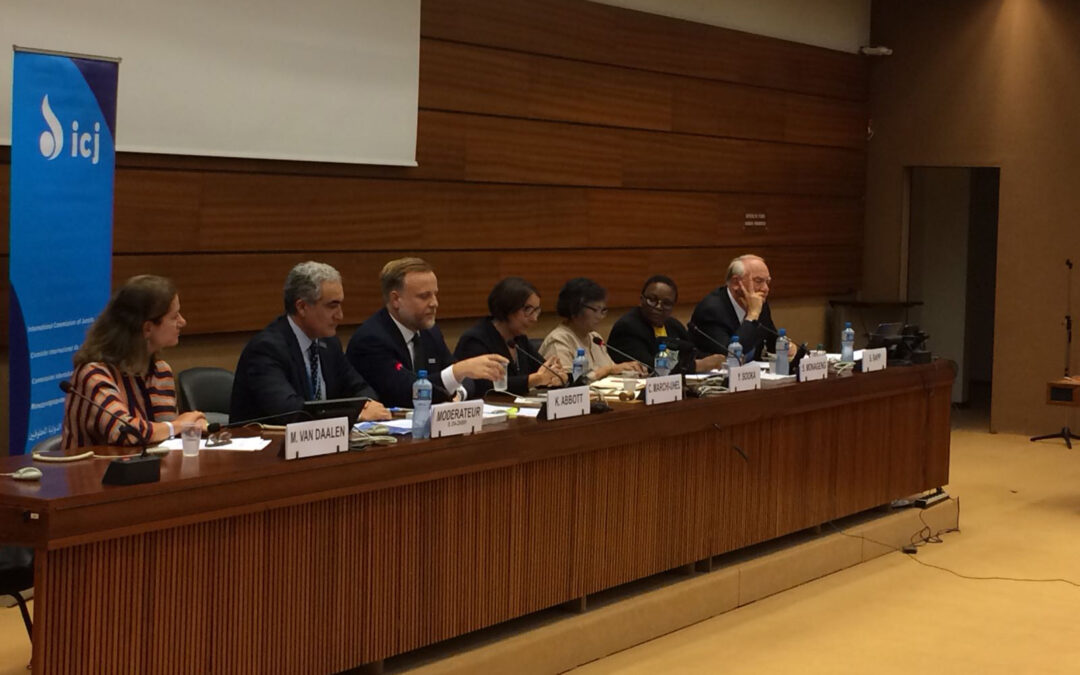
Sep 18, 2018 | Events, Multimedia items, News, Video clips
The ICJ organized this side event today (Tuesday 18 September 2018), in cooperation with the Permanent Mission of the Netherlands, at the Human Rights Council.
https://www.facebook.com/ridhglobal/videos/1005764152964172/
Background
Particularly when crimes under international law are perpetrated on a large scale in situations of crisis, there is an urgent need to preserve evidence for use in eventual criminal proceedings, whether at the International Criminal Court or other national or international tribunals
Too frequently, obstacles prevent immediate direct recourse to international courts and prosecutors. One response has been the creation of mechanisms to collect and preserve the evidence in the meantime. Examples include the International Independent and Impartial Mechanism (IIIM) for Syria, and the Commission on Human Rights in South Sudan.
At the current session of the Human Rights Council, the Fact-Finding Mission on Myanmar has called for establishment of an IIIM pending referral to the ICC or an ad hoc tribunal.
Opening Remarks:
Ambassador Monique T.G. van Daalen, Permanent Mission of the Netherlands
Moderator:
Saman Zia-Zarifi, Secretary General, International Commission of Jurists
Panelists:
- Catherine Marchi-Uhel, Head, International, Impartial and Independent Mechanism (IIIM) for Syria
- Yasmin Sooka, Chairperson, Commission on Human Rights in South Sudan
- Sanji Monageng, former Judge/Vice-President of the ICC, and Commissioner of the ICJ
- Stephen Rapp, Chair, Commission for International Justice & Accountability (CIJA), Distinguished Fellow, US Holocaust Memorial Museum, and former United States Ambassador-at-Large for Global Criminal Justice
- Kingsley Abbott, ICJ Senior Legal Adviser (Global Accountability), formerly with the Extraordinary Chambers in the Courts of Cambodia and the Special Tribunal for Lebanon
Universal-ICJ-NL-Side event-News-events-2018-ENG (flyer of the event in PDF)









